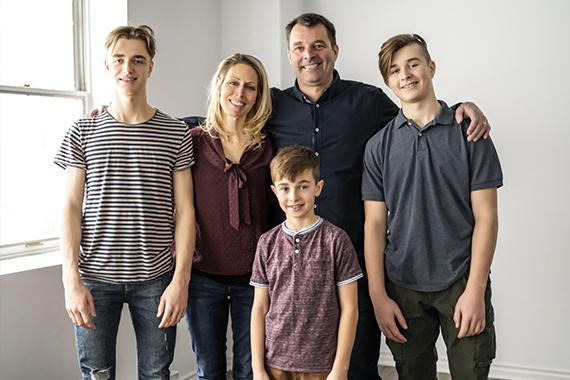Besides helping patient and family better understand ASD symptoms, we work with patients on practical breakdowns/needs, social needs, hygiene and prioritization of health and home. In addition to more specific practice on planning their weeks, we will also address needs such as:
- Perception, awareness and insight of how the client presents and participates in the world
- Point of view/mental flexibility
- Optimizing cognitive and executive-functioning skills at home, work, and school
- Learning social norms that others may take for granted, then recalling and applying those in therapy
Those with mild ASD may have no frame of reference for “normal” initiation and follow through (i.e. initiating conversation, clipping fingernails, washing dishes daily, bathing regularly, changing underwear daily, etc.). While working with patients with mild ASD, we face a challenge. How can we build a bridge between the considerable gifts they show in one area and the day-to-day skills that prevent them from excelling with those gifts?
We may be called on to help a young adult who, through the heavy diligence of her parents and the structure of classrooms in grades K-12, did fine in school. But when she gets to the less-structured and more self-directed learning approach of college, fer trouble with planning, organization and self-monitoring may cause her to struggle immensely. Commonly, we may encounter someone who is brilliant at technology and possesses laser-like focus when testing software, but cannot get hired because she doesn’t see the point of regular bathing.
Every individual and situation is different. We find it’s more effective if we learn what motivates each individual and what they most hope to accomplish by working with us. From there, we clearly present cause and effect, specific to personal impacts of needed skills, structure and routine.
We also use modeling, practice, repetition, strategies and visual reminders to help patients exercise social cues, communication skills and appropriate self-care rituals. We often work on communication skills, from personal space and eye contact to appropriate facial expressions, expected and unexpected topics and actions, and vocal quality itself. As the patient does not easily acquire the incidental learning that comes from social interactions, we teach social norms, then recall and apply them repeatedly in direct treatment to use at home, school, work or the community.
Besides outlining pragmatics and rules of conversation, we might cover other areas associated with successful day-to-day coping: recognizing and requesting help when needed and independence and planning at home, work and school. The importance of routine in managing personal hygiene, sleep, meals and medications, problem-solving and mental flexibility, awareness and self-advocacy are addressed. Because a patient's neurodiversity can make self-awareness especially hard, we also rely on honest feedback from loved ones to monitor history, challenges and progress.
It may be necessary to connect with significant authority figures in the patient’s life, such as parents, employers or teachers, so they better understand the individual’s unique cognitive attributes and how to best work with them. As an example, someone with mild ASD can become so fixated on an area of interest that they lose big blocks of time, so it might be helpful for a supervisor to schedule certain tasks within clearly defined time frames. We’ve found that those with mild ASD can often make great progress and live much more rewarding lives, as long as they learn a solid foundation of functional skills and receive compassion and understanding from those with whom they live, learn and work.

Our dedicated team of speech-language pathologists are specially trained in speech therapy as it relates to cognitive-communication issues (how you listen, process, focus, remember, and communicate). We are also nationally certified by the American Speech-Language-Hearing Association, are nationally recognized by the Brain Injury Association of America and are Certified Brain Injury Specialists (CBIS). We are licensed to practice in both North Dakota and Minnesota. We believe every patient deserves the best treatment and support we can offer in every single contact and interaction with us.
We recognize that no two people have the same needs and that everyone has different learning styles. That’s why we like to call our approach “the Progressive way,” which means we will happily customize treatment plans to meet the unique needs of the individual and their family. We also believe in “the right fit” between patient and therapist, so will make every effort to match you with a clinician who connects with you, understands you, and utilizes a therapy style that is comfortable for you.
Depending on the goals you wish to accomplish and the learning pace that is most comfortable for you, we will arm you with the evidence-based strategies, proven skills, and ample support you need to feel more organized, prepared, and effective. Therapy strategies may range from recommendations for specific tools (such as timers or planners), one-on-one brainstorming and problem-solving to address concerns, therapeutic activities as well as computer trials or worksheets to help strengthen cognitive and executive functions like attention, memory, and planning.
We know that working on cognitive-communication issues is hard work and that it can be easy to feel defeated or overwhelmed by the challenges of building a more efficient brain. However, you will not be in this alone. We are not just speech-language pathologists; we are fellow human beings who care about you, your journey, and your success. We don’t want an appointment to feel like you’ve been sent to the principal’s office. Instead, you’ll find a comfortable space where you’ll feel listened to and understood. And because humor makes everything more bearable, be prepared to laugh and joke a bit too!